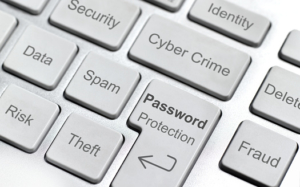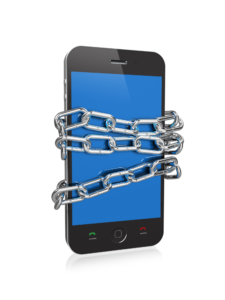What are Coronavirus Contact Tracing Apps?
Two of the biggest tech companies, Google and Apple, are pairing up to build software that could tell people if they were recently in contact with someone with coronavirus. This tool is due out in a couple of months, and it will be built into iPhones and Androids. People would have to opt in to use the tool, and if they become infected, they must voluntarily report it.
 It is pretty unusual to see these tech giants partnering up, since they are generally rivals who are constantly working to outperform the other. This shows us that the coronavirus is a pretty serious thing.
It is pretty unusual to see these tech giants partnering up, since they are generally rivals who are constantly working to outperform the other. This shows us that the coronavirus is a pretty serious thing.
This software could be highly significant in regard to slowing down the spread of the virus. In fact, public health authorities have implied that better tracking of those stricken with coronavirus could absolutely slow the pandemic.
This all sounds well and good, but think about this, too. We can now see that two of the largest tech companies on the face of the Earth have a huge impact on our lives. A tool like this could raise some privacy issues, of course, and it won’t be the only solution, but it could help in the long run.
Tim Cook, the CEO of Apple, confirms that the goal of this software is to track the virus, but he also says that they are focused on respecting “transparency & consent.” The CEO of Google, Sundar Pichai said that the software has “strong controls and protections” in place for the privacy of the users.
With this tool, a person who has been infected with coronavirus would send a notification to an app, which would then send an alert to the phones of people who had been close to that person’s device. Sounds cool, but there is a catch; Google and Apple have to get public health authorities to agree to letting this information get accessed.
There are also a number of third-party tools already out there for contact tracing. This is why Apple and Google are stepping up and trying to reach more people. The companies also said that they would offer up the technology they were using to other apps, in order to make them even more reliable.
The goal, here, of course is to make us safer…we just have to make sure that our privacy isn’t being compromised in the process.
ROBERT SICILIANO CSP, is a #1 Best Selling Amazon author, CEO of CreditParent.com, the architect of the CSI Protection certification; a Cyber Social and Identity and Personal Protection security awareness training program and the home security expert for Porch.com

 IRS Commissioner, Chuck Rettig, has been urging people to take more care during this time. He reminds taxpayers that the IRS won’t ever call to verify or collect financial information in order for you to get your refund faster. The IRS will also never email taxpayers asking for this information. Fraudulent text messages are also on the rise.
IRS Commissioner, Chuck Rettig, has been urging people to take more care during this time. He reminds taxpayers that the IRS won’t ever call to verify or collect financial information in order for you to get your refund faster. The IRS will also never email taxpayers asking for this information. Fraudulent text messages are also on the rise. Evaluate your passwords. Does every online account have a different password or are you using the same one for multiple accounts? Fix this problem immediately by investing in a password manager software. Avoid using actual words or names, or keyboard sequences. Password managers facilitate the password creation process.
Evaluate your passwords. Does every online account have a different password or are you using the same one for multiple accounts? Fix this problem immediately by investing in a password manager software. Avoid using actual words or names, or keyboard sequences. Password managers facilitate the password creation process.

























